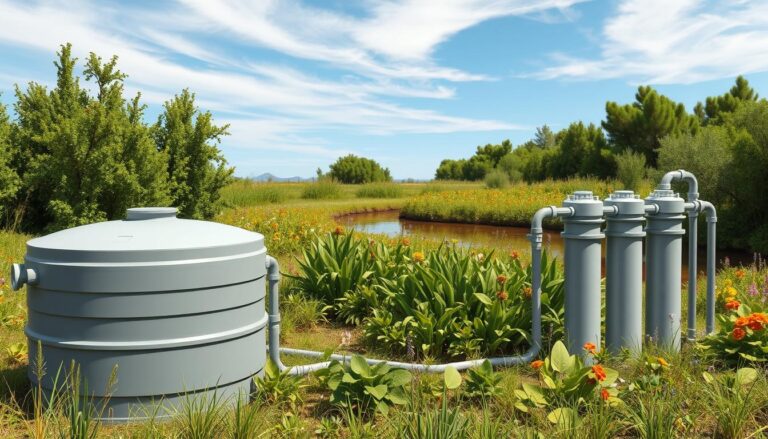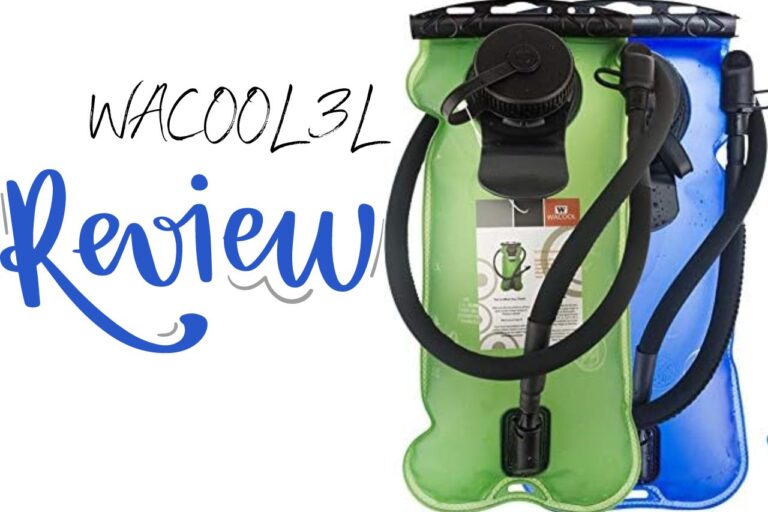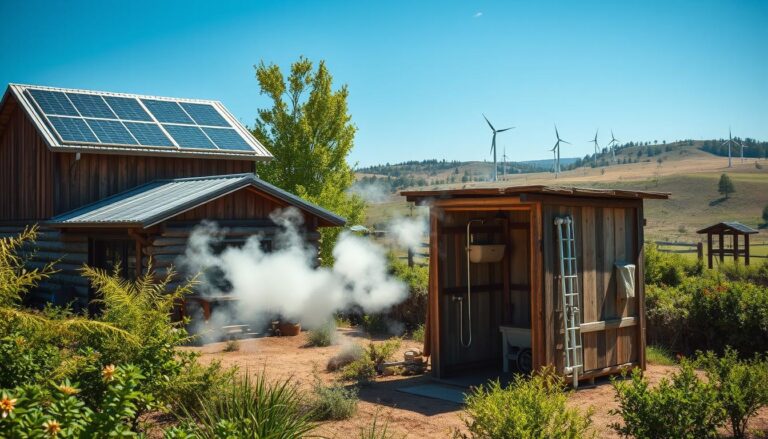Exploring the Benefits of Off-Grid Water Systems
Off-grid water systems offer a sustainable solution that saves money and protects the environment. With these systems, you can collect rainwater or use alternative sources like wells or springs, providing a reliable water source. This reduces dependence on traditional sources, conserves water, and minimizes waste. Implementing an off-grid system cuts down or eliminates monthly water expenses, benefiting both the environment and your wallet. In this article, we’ll explore the economic and environmental benefits of off-grid water systems and why they’re a smart choice for a sustainable lifestyle.
What is an off-grid water system?
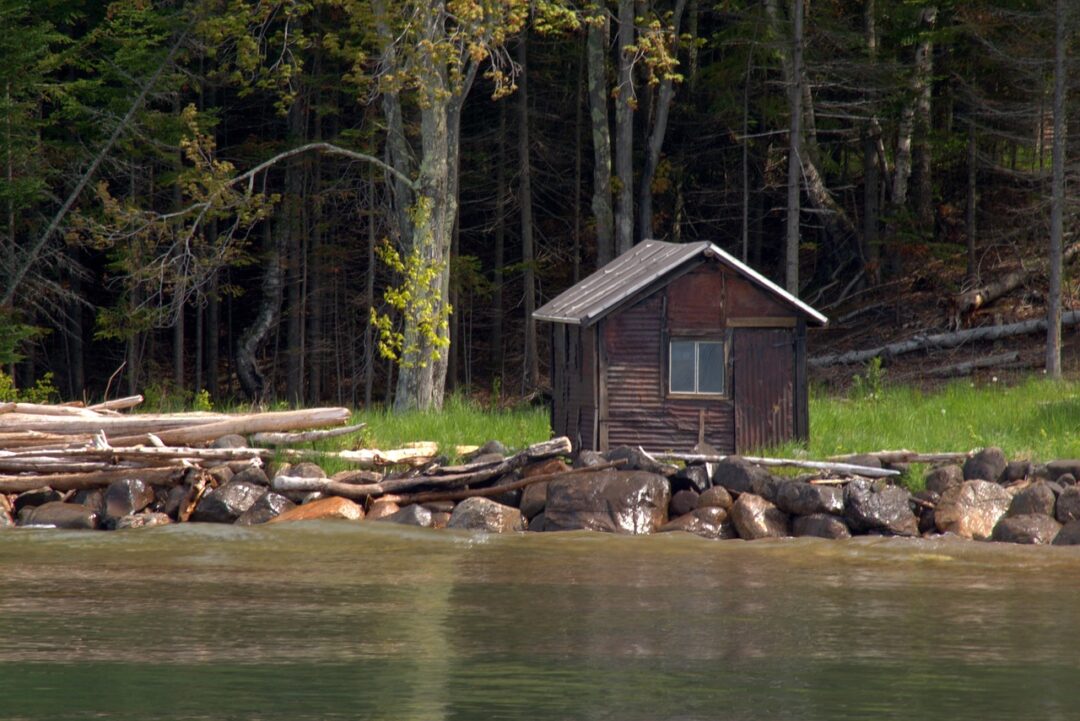
An off-grid water system is a self-contained water supply system that operates independently of the main water grid. Unlike traditional water systems that rely on municipal water sources, off-grid water systems allow homeowners to collect, store, and utilize their own water. This can be achieved through various methods such as rainwater harvesting, well water extraction, or utilizing natural springs. By disconnecting from the municipal water supply, individuals can take control of their water usage and reduce their reliance on external sources.
Off-grid water systems typically consist of several key components, including water storage tanks, filtration systems, pumps, and distribution systems. These components work together to ensure a continuous supply of clean and usable water. Depending on the specific needs and preferences of the homeowner, off-grid water systems can be customized to accommodate different water sources and usage requirements.
Advantages of an off-grid water system
There are numerous advantages to implementing an off-grid water system. Firstly, it provides homeowners with a reliable and sustainable water source. By collecting and storing rainwater or utilizing alternative sources such as wells or springs, individuals can ensure a constant supply of water, even during periods of drought or water scarcity. This is particularly beneficial for those living in remote areas where access to municipal water supplies may be limited or unreliable.
Another advantage of off-grid water systems is the ability to reduce water waste and conserve water. With traditional water systems, a significant amount of water is lost through leaks, inefficient distribution, and excessive use. By implementing an off-grid water system, homeowners can monitor and control their water usage more effectively, leading to reduced water waste and increased efficiency. This not only helps to conserve water but also reduces the strain on natural water sources, particularly in areas where water scarcity is a pressing issue.
Additionally, off-grid water systems offer homeowners the opportunity to be more self-sufficient and independent. By disconnecting from the main water grid, individuals are no longer reliant on external sources for their water supply. This can be especially advantageous during emergencies or natural disasters when municipal water supplies may be disrupted or contaminated. With an off-grid water system in place, homeowners can have peace of mind knowing that they have a reliable and safe water source available at all times.
Environmental benefits of an off-grid water system
Implementing an off-grid water system has numerous environmental benefits. One of the most significant advantages is the reduction in water consumption and waste. Traditional water systems often result in excessive use and wastage of water, leading to strain on natural water sources and ecosystems. By implementing an off-grid water system, individuals can take steps to conserve water and minimize their ecological footprint.
Off-grid water systems allow homeowners to collect and store rainwater, which would otherwise go to waste. Rainwater harvesting not only reduces the demand on municipal water sources but also helps recharge groundwater reserves. This is particularly important in areas where water scarcity is a concern, as rainwater harvesting can help alleviate pressure on existing water supplies and reduce the need for additional infrastructure development.
Furthermore, off-grid water systems can contribute to the preservation of local ecosystems. By reducing the extraction of water from natural sources such as rivers or lakes, off-grid water systems help maintain the ecological balance and ensure the sustainability of aquatic habitats. This is particularly crucial in areas with sensitive ecosystems or endangered species, where any disruption in water availability can have devastating consequences.
Cost savings with an off-grid water system

One of the most compelling reasons to consider implementing an off-grid water system is the potential for cost savings. While the upfront costs of installing an off-grid water system may be higher compared to traditional water systems, the long-term financial benefits are significant.
By collecting and utilizing rainwater or alternative sources such as wells or springs, homeowners can eliminate or greatly reduce their monthly water expenses. This can result in substantial savings over time, particularly in areas where water rates are high or subject to frequent increases. Additionally, off-grid water systems can help homeowners avoid expensive repairs and maintenance costs associated with traditional water systems, such as pipe leaks or infrastructure damage.
Furthermore, off-grid water systems may also qualify for various government incentives and rebates. Many local and national authorities offer financial incentives to encourage the adoption of sustainable and eco-friendly practices, including off-grid water systems. These incentives can help offset the initial installation costs and make implementing an off-grid water system more affordable for homeowners.
Types of off-grid water systems
There are several types of off-grid water systems available, each suited to different water sources and usage requirements. The most common types include rainwater harvesting systems, well water systems, and spring water systems.
Rainwater harvesting systems collect and store rainwater from rooftops or other surfaces. This water is then treated and filtered for use in various household activities such as irrigation, flushing toilets, and even drinking water with proper filtration. Rainwater harvesting systems typically consist of gutters, downspouts, storage tanks, and filtration systems.
Well water systems extract water from underground aquifers through wells. Depending on the depth and quality of the well, the water may require treatment and filtration before use. Well water systems typically include a pump, pressure tank, filtration system, and distribution system.
Spring water systems utilize natural springs as a water source. Springs provide a constant supply of fresh water, which may require minimal treatment and filtration before use. Spring water systems typically include a collection point, filtration system, and distribution system.
The choice of off-grid water system depends on factors such as the availability and quality of water sources, local regulations, and individual water usage requirements.
Components of an off-grid water system

Off-grid water systems consist of several key components that work together to ensure a reliable water supply. The main components include water storage tanks, filtration systems, pumps, and distribution systems.
Water storage tanks are essential for collecting and storing water from rainwater harvesting, wells, or springs. These tanks can be above-ground or underground, depending on available space and individual preferences. The size of the storage tank will depend on the water usage requirements and the availability of water sources.
Filtration systems are crucial for ensuring the quality and safety of the water. Depending on the water source and intended use, different filtration methods may be required. Common filtration techniques include sediment filters, activated carbon filters, and ultraviolet (UV) disinfection systems.
Pumps are used to move water from the storage tank to the distribution system. The type and size of the pump will depend on factors such as the distance and elevation between the storage tank and the point of use. It is important to select a pump that is energy-efficient and capable of meeting the water pressure requirements.
The distribution system is responsible for delivering water to the various points of use within the property. This can include faucets, showers, toilets, irrigation systems, and any other water outlets. Proper planning and design of the distribution system are essential to ensure adequate water pressure and efficient water flow.
Factors to consider before installing an off-grid water system
Before installing an off-grid water system, there are several factors that homeowners should consider to ensure a successful and efficient setup.
Firstly, it is important to assess the availability and quality of the water source. Conducting a thorough analysis of the water source, including testing for contaminants and evaluating the flow rate, will help determine the suitability of the source for an off-grid water system.
Additionally, local regulations and permits should be taken into account. Some areas may have specific guidelines or restrictions regarding off-grid water systems, particularly when it comes to water rights, well drilling, or rainwater harvesting. It is essential to familiarize oneself with the local regulations and obtain any necessary permits before proceeding with the installation.
Furthermore, it is important to consider the water usage requirements and plan the system accordingly. This includes estimating the daily water consumption, considering peak demand periods, and designing the storage capacity and distribution system to meet these requirements.
Lastly, it is crucial to factor in the maintenance and upkeep of the off-grid water system. Regular maintenance and monitoring are essential to ensure the system operates efficiently and to identify any potential issues before they escalate. Homeowners should familiarize themselves with the maintenance requirements and schedule regular inspections and servicing as needed.
Maintenance and troubleshooting tips for off-grid water systems
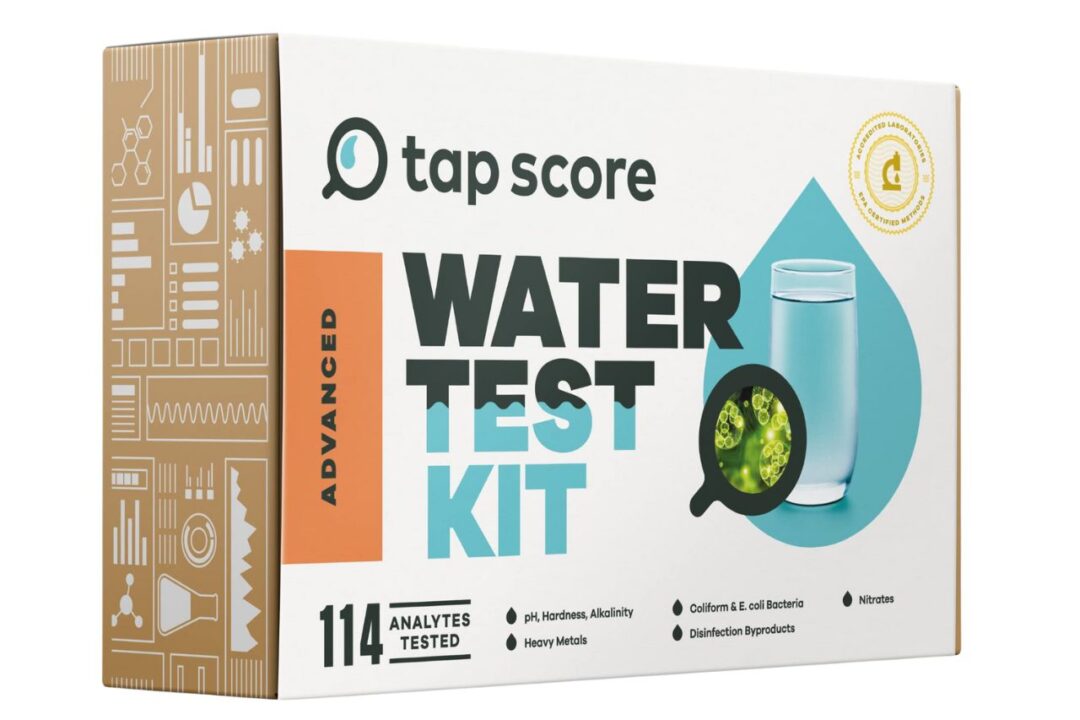
To ensure the optimal performance and longevity of an off-grid water system, proper maintenance and troubleshooting are essential. Here are some tips to help homeowners keep their off-grid water systems running smoothly:
1. Regularly inspect the storage tanks for leaks, cracks, or signs of degradation. Clean the tanks periodically to remove sediment or debris that may accumulate over time.
2. Test the water quality regularly to ensure it meets the desired standards. This includes testing for contaminants, pH levels, and hardness. Depending on the test results, make any necessary adjustments or treatment to maintain water quality.
3. Clean and maintain the filtration system according to the manufacturer’s recommendations. This may involve replacing filters, backwashing systems, or disinfecting UV lamps.
4. Monitor the water pressure and flow rate to ensure adequate water supply to all points of use. Adjust the pressure settings on the pump if necessary.
5. Inspect the distribution system for any leaks, damaged pipes, or faulty valves. Repair or replace any components that may affect water flow or cause wastage.
6. Regularly check the electrical connections and wiring of the pump and other electrical components. Ensure there are no loose connections or signs of damage.
7. Keep a record of maintenance activities and observations to track the performance of the off-grid water system over time. This will help identify any recurring issues or areas that may require improvement.
In the event of any issues or malfunctions, it is important to troubleshoot the problem promptly. Consult the system’s manual or seek professional assistance if needed to diagnose and resolve the issue.
Case studies of successful off-grid water system installations
To provide real-life examples of successful off-grid water system installations, let’s explore a couple of case studies:
Case Study 1: A family living in a remote rural area with limited access to municipal water supplies decided to implement a rainwater harvesting system. They installed a large above-ground storage tank with a capacity of 10,000 gallons to collect rainwater from their rooftop. The harvested rainwater is treated and filtered using a multi-stage filtration system before being used for all household activities. The family now enjoys a reliable and sustainable water source, eliminating their dependence on external water supplies.
Case Study 2: A homeowner living in an arid region with limited water availability decided to implement a well water system. They drilled a well on their property and installed a submersible pump to extract water from the underground aquifer. The well water is treated and filtered using a combination of sediment filters and UV disinfection systems. The homeowner now has a constant supply of clean and usable water, reducing their reliance on the limited municipal water supply.
These case studies highlight the versatility and effectiveness of off-grid water systems in different scenarios. By customizing the system to suit the specific needs and available resources, homeowners can achieve a sustainable and independent water supply.
Frequently Asked Questions About Off-Grid Water Purification Systems
Below you will find answers to the most commonly asked questions about treating water if you live off the grid:
What should I do with greywater if I live off the grid?
When living off-grid, it is important to find sustainable solutions for greywater. One option is to use a greywater filtration system to treat the water and reuse it for irrigation or flushing toilets. Another option is to create a greywater wetland, where plants can naturally filter and purify the water. It is important to research local regulations and guidelines when dealing with greywater off-grid.
What is the best water purification system for someone that lives off the grid?
There are several great options for water filtration systems for off-grid living. Some popular choices include gravity-fed filters like the Berkey Water Filter, portable filters like the Sawyer Mini Water Filter, and UV sterilizers like the SteriPEN. The best system for you will depend on your specific needs and preferences.
How do you make an off-grid water source?
Creating an off-grid water source involves several steps. First, you need to identify a water source such as a well, spring, or rainwater collection system. Next, you will need to install a filtration system to ensure the water is safe to drink. Additionally, you may need to set up a storage system to hold the water. It is also important to consider water conservation methods and sustainable practices to ensure a reliable off-grid water source.
How do you calculate gallons of rainwater?
The formula to calculate the amount of water you can harvest per inch of rainwater is: Area of collection surface (in square feet) x Rainfall (in inches) x 0.623 = Gallons of water harvested.
Key Takeaways
- Off-grid water systems are self-contained and operate independently of the main water grid.
- Advantages include reliable and sustainable water supply, reduced water waste, and independence from external sources.
- Implementing such systems can lead to long-term cost savings by eliminating or reducing monthly water expenses.
- Types of off-grid water systems include rainwater harvesting, well water systems, and spring water systems.
- Components of off-grid water systems include storage tanks, filtration systems, pumps, and distribution systems.
- Factors to consider before installation include water source availability and quality, local regulations, and water usage requirements.
- Maintenance tips include regular inspections, water quality testing, cleaning filters, monitoring pressure and flow, and checking electrical connections.
- Successful case studies demonstrate the effectiveness and versatility of off-grid water systems in different scenarios.



